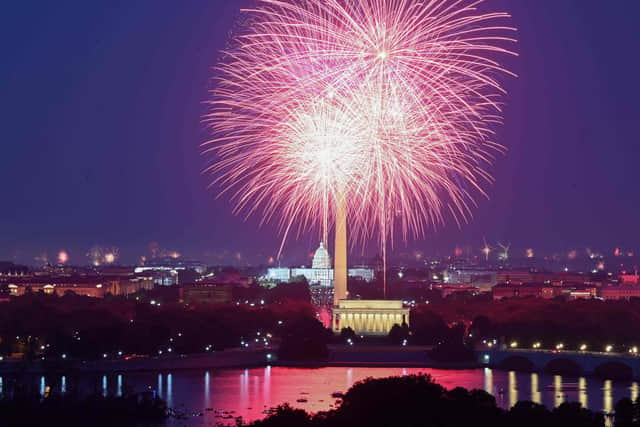4th July: When is Independence Day? Why do Americans celebrate on the Fourth of July?
There are some holidays that are shared around the world, like Eid, Christmas, and other traditions that people celebrate in the majority of countries. However, some national holidays stay purely national, with Independence Day one such holiday.
Americans celebrate the establishment of the United States of America and its independence from Great Britain, commemorating and celebrating the legal separation of the thirteen colonies from Great Britain back in 1776.
Advertisement
Hide AdAdvertisement
Hide AdHere’s when the holiday takes place and how Americans celebrate.
When is Independence Day?
As it’s known as Fourth of July, the date of Independence Day is self-explanatory, falling on July 4th each year. The date is decided by the fact that the Second Continental Congress adopted the Declaration of Independence on July 4th.
The vote to approve independence and pass the Lee Resolution actually took place two days earlier, on July 2nd. Nonetheless, July 4th is the date that has been celebrated since 1776.
Why do Americans celebrate on the Fourth of July?
Fourth of July commemorates the Founding Father delegates of the Second Continental Congress declaring that the Thirteen Colonies were no longer subject (and subordinate) to the monarch of Britain, King George III, and were now united, free, and independent states.
These thirteen states were New Hampshire, Massachusetts, Rhode Island, Connecticut, New York, New Jersey, Pennsylvania, Delaware, Maryland, Virginia, North Carolina, South Carolina, and Georgia.


Although the date has been remembered since 1776, the process of it becoming a national holiday happened over time. Back in 1777, thirteen gunshots were fired in salute, once at morning and once again as evening fell, on July 4th in Rhode Island. Similar celebrations took place in other states.
In 1778, from his headquarters at Ross Hall in New Jersey, General George Washington celebrated July 4th with a double ration of rum for his soldiers and an artillery salute. Across the Atlantic Ocean, ambassadors John Adams and Benjamin Franklin held a dinner for their fellow Americans in Paris, France.
In 1779, July 4th fell on a Sunday. As a result, the holiday was celebrated on Monday, July 5th.
Advertisement
Hide AdAdvertisement
Hide Ad

How do Americans celebrate the 4th of July?
It wasn’t until 1870 that the US Congress made Independence Day an unpaid holiday for federal employees and until 1938 that Congress changed Independence Day to a paid federal holiday.
Americans usually celebrate Independence Day with fireworks, parades, barbecues, carnivals, fairs, picnics, concerts, baseball games, family reunions, political speeches, and ceremonies. Various other public and private events celebrating the history, government, and traditions of the United States also take place, and citizens will typically dress up in their national colours: red, white and blue.
Even Americans living abroad in other countries will usually commemorate the Fourth of July in some way.
Comments
Want to join the conversation? Please or to comment on this article.
